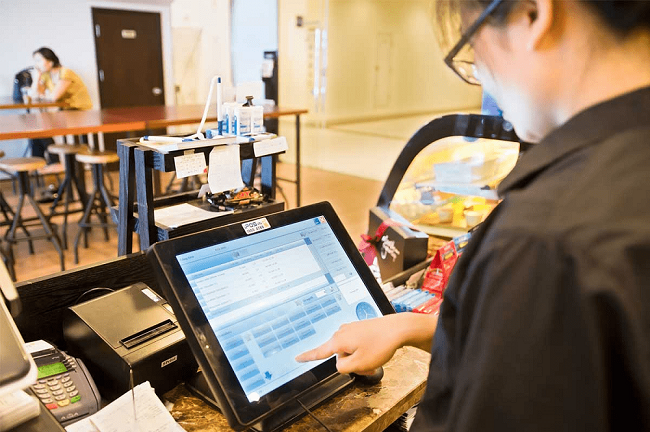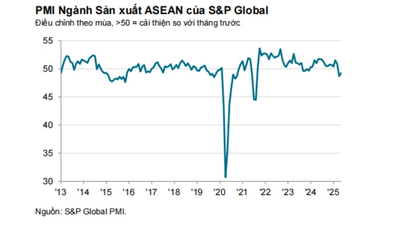The application of electronic invoices from cash registers is a step in the roadmap to modernize tax management, replace lump-sum tax and increase transparency in business operations. Households and businesses that do not properly implement regulations will be at risk of administrative sanctions, even interruption of operations due to invoices not being legally accepted.
According to the Tax Department, this conversion will directly affect about 37,000 households and business individuals who are paying taxes by lump sum method and are in the group with large revenue. Households and business individuals who do not comply with regulations will be at risk of being administratively sanctioned or even having their operations interrupted due to invoices not being legally accepted.
Principles of using electronic invoices from cash registers
Electronic invoices from cash registers are invoices that are created through cash registers with the function of connecting and transmitting electronic data to tax authorities. This type of invoice has the following characteristics: No digital signature is required; Allows the use of printed copies, photocopies or invoice information lookup from the General Department of Taxation's Electronic Information Portal; Is determined to be a legal document for tax declaration when ensuring full content according to regulations.
Sellers can send electronic invoices to buyers in many forms: text messages, emails, QR codes, electronic links, etc., making storage and retrieval more convenient and flexible.
From the time the regulation takes effect, electronic invoices generated from cash registers must have the following complete information:
- Seller information: Name, address, tax code.
- Information about goods and services: Name of goods/services, unit price, quantity, total payment amount.
If the organization/enterprise applies the VAT deduction method, it is necessary to add: price excluding VAT, tax rate, VAT amount, total amount including tax.
- Time of invoice.
- Tax authority code or electronic data allows buyers to look up and declare invoices.
In particular, information about the buyer such as name, address, tax code, personal identification number or phone number is only recorded when requested by the buyer.
Sanctions for violations
According to regulations, business households that are required to not register to use electronic invoices generated from cash registers with data connected to tax authorities will be subject to administrative penalties, depending on the nature and severity of the violation.
In case a business household has been supported and notified by the tax authority about the conversion to apply electronic invoices generated from cash registers but does not convert, it will be determined as a violation of regulations on invoice use, the tax authority will coordinate with competent authorities to handle the violation according to regulations.
Specifically, in the case of a business household that is required to register to use electronic invoices generated from cash registers but does not register, depending on the nature and severity of the violation, it will be fined from 2-4 million VND for the act of creating the wrong type of invoice according to regulations.
Business households will be fined from 5-10 million VND for not issuing invoices when selling goods or providing services to buyers as prescribed.
For cases where business households have registered to use electronic invoices generated from cash registers but do not have connections, transfer electronic data with tax authorities or have not used, or have not fully used, electronic invoices generated from cash registers from 2024 or earlier, they will be fined from 2-4 million VND.
To ensure that all taxpayers clearly understand the benefits and fully comply with the regulations on electronic invoices generated from cash registers, on May 31, the Director of the Tax Department issued an urgent dispatch requesting regional Tax Branches to promote the implementation of electronic invoices generated from cash registers, ensuring that 100% of households and business individuals subject to the application fully comply.
Accordingly, the Director of the Tax Department requested the Directors of the Regional Tax Departments to urgently promote the activities of the Steering Committee for the implementation of electronic invoices generated from cash registers, ensuring full and timely implementation of the Tax Department's instructions; be responsible for comprehensively directing the implementation of electronic invoices generated from cash registers in the area; monitor and check the results periodically on a daily and weekly basis; promptly grasp the problems and difficulties in the implementation, ensure effective and substantial implementation, and complete 100% of taxpayers who are required to use electronic invoices generated from cash registers.
At the same time, immediately establish standing teams to deploy electronic invoices generated from cash registers, assign a leader of the tax authority as the team leader, leaders of the Business Management and Support Departments, the Personal Tax Department, Business Households and Other Revenue Departments, and leaders of the District Tax Teams and civil servants of the Departments/Teams as members. In addition, establish standing implementation teams under the Tax Teams to directly deploy propaganda and support to each taxpayer, especially households and individuals doing business in the area.
From now until 100% of the assigned planned targets are completed, the Head of the Tax Department is responsible for arranging sufficient specialized civil servants, publicizing the list of civil servants in charge of the management department, supporting businesses, the personal tax department, business households and other revenue departments, along with contact information, maintaining continuous and regular operations (including holidays) to promptly answer and support taxpayers and consumers to clearly, correctly and fully understand the regulations, policies and laws on electronic invoices generated from cash registers, as well as sanctions for tax and invoice violations.
Source: https://baodaknong.vn/chinh-thuc-xoa-bo-thue-khoan-ho-kinh-doanh-co-doanh-thu-tren-1-ty-dong-phai-luu-y-nhung-dieu-nay-254304.html








































































































Comment (0)